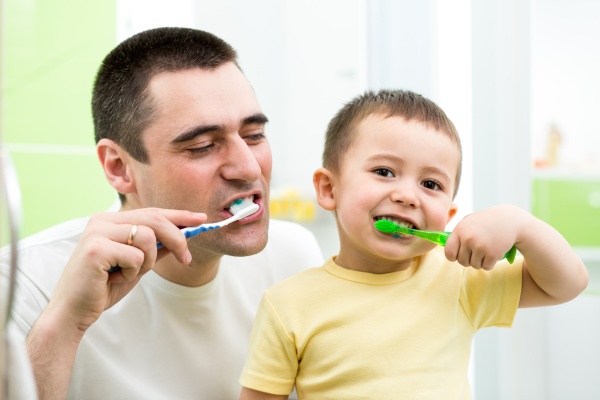Basic Tips for Gum Disease Prevention

Gum disease prevention begins with you and the oral health habits you engage in. Many people realize they may have a problem with their teeth when they find blood on their toothbrush, have frequent bad breath or have red/swollen/tender gums.
According to the American Dental Association (ADA), these are all symptoms of gingivitis, which is an early stage of periodontal disease. If you want to actually engage in gum disease prevention, there are a few steps you need to take on a regular basis to help prevent the onset of gum disease and keep your mouth in good shape.
Preventing gum disease
The first and most important step in gum disease prevention begins at home with your tooth brushing habits. Even if you have the best toothbrush habits of anyone you know, here are few tips you can use in order to help prevent gum disease.
As part of a gum disease prevention strategy, we highly recommend that you use a soft bristle toothbrush, which is small enough to allow the bristles to get into even some of those hard-to-reach places. Any time your brush leaves plaque in a hard-to-reach place, there's the potential that it can lead to gingivitis, periodontal disease, or an even more serious condition.
Proper brushing technique is crucial
When you are brushing your teeth with your soft bristle toothbrush, we recommend that you place your toothbrush at a 45-degree angle against the gum line. In addition, we recommend that you brush your teeth for a minimum of two minutes and use short, gentle strokes on each tooth.
It is also advisable that you brush your teeth in a pattern so you do not miss any critical areas. Improper brushing will risk leaving behind plaque and increasing your chances of gum disease prevention. Gum disease prevention also involves replacing your toothbrush - or old toothbrush head, if you use an electronic toothbrush - a minimum of once every six months. If you are using an old or worn out brush, the bristles can harbor bacteria.
In addition, frayed bristles will not do a good enough job of getting rid of the plaque. If you have ever wondered why your dentist gives you a goodie bag with a new toothbrush when you visit for your six-month visit, now you know the answer.
Flossing is also important
Another outstanding gum disease prevention method is to properly floss your teeth a minimum of once a day, ideally before you head to bed. The best way to do this is to wrap an 18-inch piece of floss around your middle finger in each hand. Without damaging the gum tissue in between your teeth, bring the floss over the gum tissue and around the teeth to go beneath the gum line and floss on both sides of the tooth.
It is important to make sure you clean the floss before moving from one to the other, so you are not transmitting any potential bacteria. Finally, there is no substitute for getting your teeth professionally cleaned to remove plaque and reduce bacterial toxins at least once a year.
Request a dental appointment here: https://artisandentalbellevue.com or call Artisan Dental at (425) 454-2005 for an appointment in our Bellevue dental office.
Related Posts
Concerned about gum recession? Read on to learn the commonality of receding gums and how they can be treated and prevented. Receding gums are common among individuals with periodontal disease. However, there are different levels of gum recession, and the severity of the concerns depends on how far the gums have receded.Receding gums can become…
Gums deterioration exposes the tissue that protects the teeth's roots. Receding gums may also occur around an improperly placed tooth. When the origins of the teeth become exposed due to receding gums, the teeth are more susceptible to decay, infection, and loss. People may halt or reverse the progression of gum recession if they seek…
Receding gums occur as a result of periodontitis (gum disease). Early intervention for gum disease can minimize the invasiveness of treatment, and many patients are able to restore the health of their gums and teeth through improvements in their oral care routine, non-invasive dental treatments, and at-home remedies.At-home remedies do not reverse receding gums, but…
Concerned about receding gums? Read on to learn more about this condition and how it presents itself. You may be able to notice receding gums by simply examining the appearance of your gums at home. If you notice your gums are pulling away (receding) from gums, then you are most likely experiencing gum recession. However,…









